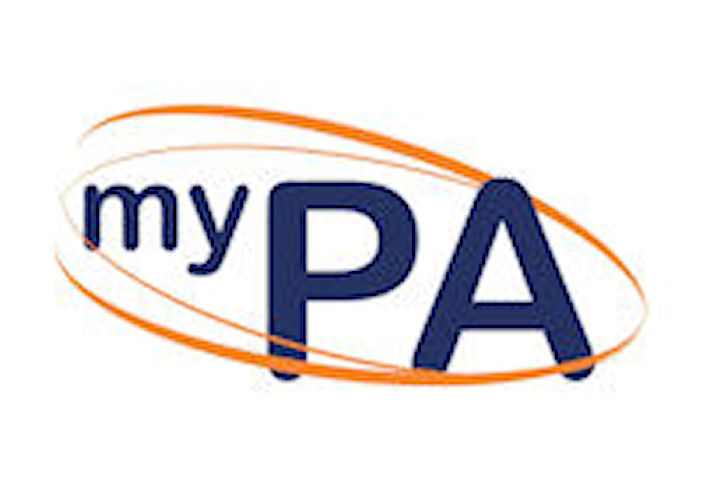
by myPABus | Oct 18, 2020 | Business Training, Office Skills, PA and Secretarial Training
What does a PA Do? and indeed, what is a PA. A PA is Personal Assistant to the manager, department or CEO. They provide administrative support and take care of their boss so that they can

What does a PA do?
Perform their jobs with ease and confidence. A Personal Assistant could also be called an Executive Assistant or even a Virtual PA or Virtual EA. In this article, I will use the term PA to cover all of above.
Being a Personal Assistant (PA) is like being a fine artist. You have to have the ability to see an end product using the raw materials you have available to you. Anticipate the likes and needs of those you are looking after, without them knowing or understanding what they like or dislike. A PA has to be meticulous about their time management, planning and organisational skills and then make these tasks look smooth and effortless. Any PA unable to master these three skills will inevitably find the role as a Personal Assistant difficult. A PA should have their finger on the proverbial button of any activity their boss is undertaking at any time. Not only that, a PA has to anticipate what the boss requires today tomorrow and next month.
So What does a PA do to make sure they are on the ball?
A PAs mantra or go to question should always be “What is the next question” their boss is going to ask. Ensure they can answer that question and then the next question their boss will ask. The standard Who, What, Where, When, Why and How questions should be applied to any and all tasks a PA undertakes. Once a PA has mastered this tool they will start to see and show improvements in their PA ability and demonstrate how capable and competent they are in their role.
All PAs need to demonstrate consistency in their workload and be as enthusiastic on Monday morning at 9 am as they are on Friday at 5 pm. They need to be effective and efficient in all the tasks that they undertake and become proactive instead of reactive. It is recommended that a PA schedules at least 60% of their working day. This will leave 40% of their day to be reactive. We, therefore, advise each PA to plan tasks in advance. Taking note of business deadlines and the expectation is essential. A PA will also have to remember their boss has deadlines that could rely on work they have to do.
PAs Personal Recommendations
We would also recommend that every PA take a few minutes at the end of the day to note at least five successes they have had that day. It is true to say that everyone will have a bad day at work at some point. Noting down any success they have will help any PA remember how good they are. How well they perform their job and organising their boss.
In conclusion, What does a PA Do?
When the role of a PA is performed correctly, it is a work of art. The position is seamless, timeless and a thing of beauty. Their boss will never know the amount of work, effort and organisational skills the PA will put into their role. All of this, to ensure that the boss has a perfect working environment so they can perform at their peak.
The PA is indeed the unsung hero of any organisation. It is time for all PAs to stand up and be proud of the jobs that they do. The tasks they undertake and show what a strong, determined woman can do. For more information about becoming a PA or attending a training course click here.
The PA Tips on this post are those that are highly recommended to become an effective PA. It is also vitally important that a PA keeps on track of all new technology, new ways of working and are open to any PA Tips they can glean from colleagues and even their boss.

by myPABus | Feb 14, 2018 | Administrative Support, Business & Corporate, Office Skills
I am a great believer in having an email signature on all my emails. I am also a great believer in keeping up with modern work techniques and changes that take place. Which is why I started this blog giving PA Tips and Secretarial Support.
When I started school things changed every decade, then the age of computing arrived, and things changed every 18 months, and now, with the aid of social media, they seem to change every minute. As a consequence; I attended a training course myself to find out what changes may be occurring over the next few months in our industry.

What is an email signature for?
To my utter amazement, it seems to be with emails and email signatures. It is one of the strangest changes and I would never have thought about 12 months ago. To be fair, even last week. The standard convention has always been that when you send a business email, you add a signature. The signature tells the recipient your name, your job title, and contact details. Quite often there is a legal disclaimer. The disclaimer will state that the information provided is for the recipient only and if misdirected, please delete the email. Then, of course, there is the small advertisement about the company or a testimonial telling prospective customers or clients how good your business is. As I said, this is the standard, but each company may be different and offer different guidelines. My company abides by the above, and I have been pleased with this style of format.
Never the less, it has come to my attention that large organisations have started to remove surnames from people’s email signatures to have a generic email address. When I have called organisations and the person on the other end of the phone has given me an email address that is generic I am told that they will receive the email or that their first name is sufficient, and the message will reach them. It is not something I have given much thought to in the past.
However, it has been brought to my attention that the reason for this is that many staff (especially ladies) have found that during their working day they have given out their name, their email, and works telephone number. All useful forms of communication for a client or customer to contact them. This is where it gets interesting. Some of those people have then been stalked out of the office by the clients or customers. The client or customer has been able to locate them from the minimal amount of detail they obtained from the regular communication they had during a working relationship and then taken it one step further.
Facebook is an excellent tool for communication, as is Twitter, Instagram, Pinterest etc. However, we know there are risks associated with our personal data on these sites. For example, I have never put my birthday on social media or any reference to the day or month. I don’t put my address or house number, including photos of my home that could identify where I live. I have even found that I moderate my Facebook posts and opinions when using the various social media platforms. A form of self-restriction.
It only takes a few minutes for someone to find out those details, and you could have lost your identity or find that you are the proud owner of a new credit card that owes circa £10,000 worth of debt. It has never really occurred to me to extend some of that security to the emails I send, and the details people can glean from that.
In Conclusion, what will my email signature look like
As I said at the beginning, I had never thought about an email signature in this contex. It is fascinating when you spend a few minutes thinking about how vulnerable we have, and are becoming, digitally. So, the big question. Will I change? My email address only uses my first name, so there is no change there. What about my signature? You know, I think I may get the ladies in my office to change there’s. As the owner of a business and advising about PA Tips and Secretarial Support, I have put myself forward as the face of my company. I don’t feel I can then hide behind a title. I will, however, take a little more care about what I put in my emails and the amount of details people could glean from them.
You may also be interested in the following posts about PA Tips and Secretarial Support
Contact Details, Email Signatures
Contact Details Email signature

by myPABus | Feb 21, 2017 | Administrative Support, Business Training, Office Skills, PA and Secretarial Training

Have you ever wondered what your net worth is, as a human being? What your experience from birth to right now, this very moment has made you worth? It is one of those questions we can often think about, but as women never answer or avoid at all costs. There are some women will go directly to their current hourly rate, in employment. There are some who will say instantly say I am worthless and those who will tell you they are worth a million pounds. The truth could be in-between all of the above.
With that in mind, let’s do a little task. This task could take you a few minutes, hours or days (especially if you decide to do the task truthfully). Arrange to get some time on your own, without any distractions, interruptions and in a quiet place that will allow you to think freely.
Now, grab a pen and paper and write down all your qualifications, even those swimming qualifications and gymnastic badges you had as a child. Include any exams you gained from school, college and or university. Don’t forget those extracurricular activities like piano or guitar qualifications. Just write them down and do not re-read them. Once you have finished, turn the piece of paper over. Then, on a separate piece of paper add all the experiences you have had over the last few years. Include your jobs, your home and family responsibilities. These will include your personal responsibilities. Those responsibilities that you do every day without even thinking about it. For example, do you have a pet that you look after or have older parents or younger siblings that depend on you? All of these experiences create value to you as a person. Once you have finished, I would like you to put these two lists away for 24 hours. Don’t read them, don’t look at them, just put them away.
24 Hours Later
Now, I would like you to take your lists and read them.
- Read out aloud all the qualifications you have.
- Read the list of all your experiences.
Did you find anything on these lists as a surprise?
Do you have more qualifications than you expected, do you have more experience than you realised?

Money is the key or is it?
Just for fun, on your qualifications list and experience list, how much do you think it would cost to get those qualifications and that experience if you were starting from scratch. State education cost per child circa £48,000. A degree can cost up £37,000 (without accommodation and living expenses). That is £85,000 we have had spent on us already, and we have not even started on our experience!
Now ask yourself the question, ‘If you had to pay someone else, with all those skills, what would their hourly rate be?’ It could be argued that this be your net worth.
Personal Reflection on Your Net Worth
I undertook this task a few years ago, and I was surprised and a little intimidated by the person who had acquired all my skills and experiences. We take ourselves for granted so often, that sometimes we just need to stop, take a look at ourselves and congratulate us for what we have done and what we will be doing in the future.
Your net worth is not the amount you get paid. It is the amount of money you would have to pay someone to do what you do, daily.









